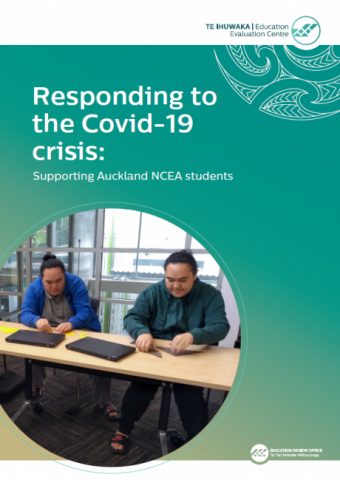Communities of Learning Kāhui Ako - Collaboration to Improve Learner Outcomes
Published: 25 Jan 2017
This publication is designed to support Communities of Learning | Kāhui Ako by bringing together research findings about effective collaboration in education communities. It is supported by the publication Communities of Learning | Kāhui Ako: working towards collaborative practice.
- Audience:
- Schools
- Content type:
- Research
- Topics:
- Communities of Learning | Kāhui ako
- Collaboration to improve learner outcomes
- Pasifika
- Special education

